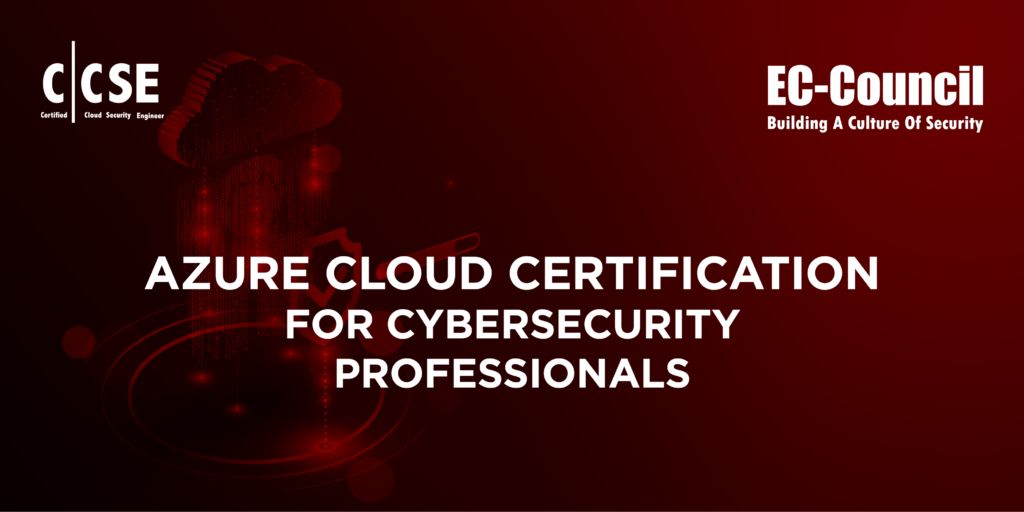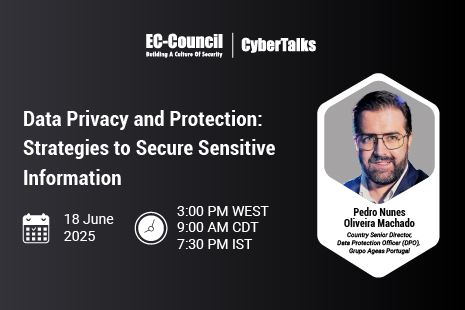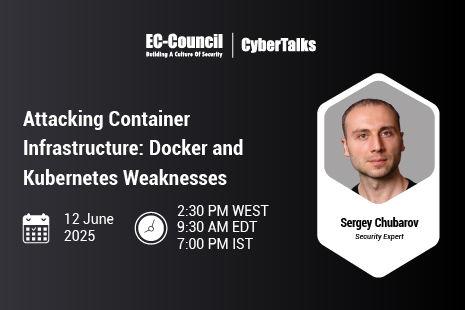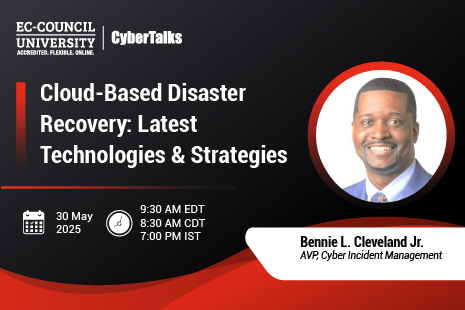Introduction
A solid understanding of Azure Cloud is essential for IT workers interested in cloud security. Obtaining an Azure cloud certification is an excellent way to demonstrate that you have the skills and experience necessary to protect Azure environments from security incidents. In addition, since Microsoft Azure is one of the most popular cloud environments, understanding Azure security is a crucial step for cybersecurity experts who want to take a more vendor-neutral stance.
This article will discuss everything you need to know about Azure cloud certification for cybersecurity professionals.
What is Azure Cloud?
Microsoft Azure is a public cloud computing environment offered by Microsoft that is one of the top 3 cloud service providers, along with Amazon Web Services (AWS) and Google Cloud Platform (GCP). Azure Cloud offers a wide range of public cloud services, including compute, storage, databases, networking, big data and analytics, machine learning, and artificial intelligence. Customers of Azure Cloud can use these offerings to build, deploy, and manage their own applications and services within Microsoft’s global network of cloud data centers.
Because Azure Cloud has a healthy market share and over 200 public cloud services and products, it is a major player in the field of public cloud computing. In the fourth quarter of 2022, Azure Cloud occupied 23 percent of the global cloud infrastructure market, making it the second most popular vendor after Amazon Web Services (Vailshery, L., 2022).
With so many Azure products and services available, it’s no surprise that there are also many Azure cloud certifications. As of writing, more than 50 Azure certifications are listed on the Microsoft website (Microsoft, 2023).
For example, beginners can get started with Microsoft Azure training using certifications such as “Exam AZ-900: Microsoft Azure Fundamentals.” Microsoft also offers more advanced certifications in specialized Azure topics such as cybersecurity, including “Microsoft Certified: Cybersecurity Architect Expert.”
The Importance of Azure Cloud Certification for Cybersecurity
Obtaining an Azure cloud certification can be tremendously useful for cybersecurity professionals. Below are just a few reasons to invest in Azure cloud certification:
- Gaining a foothold in cloud security: Azure cloud certification helps cybersecurity professionals understand the challenges and best practices associated with Microsoft Azure cloud computing. This includes the tools and methodologies used to secure Azure infrastructure, applications, and databases.
- Career advancement: IT certifications generally give individuals the opportunity to demonstrate their knowledge and expertise in a certain technology or field. Obtaining an Azure cloud certification can help workers stand out to potential employers, get a leg up on their career, and keep up with the changing face of enterprise IT.
- Widespread use of Azure: If you’re interested in the field of cybersecurity, getting an Azure cloud certification is a very wise idea. A majority of organizations worldwide—an estimated 56 percent—use Microsoft Azure for their cloud services (Vailshery, 2022). This means that thousands of companies are in need of Azure computing security experts who can help protect them from data breaches, hacks, and other IT security incidents.
- Highly applicable: Due to Microsoft Azure’s high profile, Azure and its customers have been involved in a number of major cybersecurity issues. Understanding how to identify and resolve these issues is crucial for cybersecurity professionals. In February 2023, for example, researchers discovered that the Defense Department inadvertently leaked more than a terabyte of confidential messages due to a Microsoft Azure cloud misconfiguration (Martin, P. et al., 2023).
- Meeting compliance requirements: Many companies and industries need to meet specific compliance requirements in terms of cybersecurity, such as HIPAA, GDPR, and PCI DSS. By obtaining Azure cloud certification, IT professionals can demonstrate to auditors and regulators that the organization is in compliance with all applicable laws and regulations.
What to Look For with Azure Cloud Certification
Of course, not all Azure cloud certifications are created equal. Receiving a cybersecurity certification can be a time-consuming and intensive task that requires a great deal of self-study and motivation. This means that would-be students need to carefully select the Azure cloud certifications they choose to obtain.
When looking for the right Azure cloud certification, IT professionals should consider a number of factors. First, Microsoft certifications are offered at four different levels: Fundamentals, Associate, Expert, and Specialty. With a wide variety of options available, you should select the Azure certification that best aligns with your career goals and level of experience.
As of writing, Microsoft offers 11 different certifications and exams for would-be Azure security experts. Two particularly relevant exams are:
- Exam AZ-500: Microsoft Azure Security Technologies: The AZ-500 exam verifies that candidates are able to deploy, manage, and monitor Azure security solutions, including in multi-cloud and hybrid cloud environments. By passing this exam, candidates demonstrate that they can identify and resolve cloud vulnerabilities, model security threats, and select the right security components and configurations to protect Azure resources, including identity & access, data, networks, and applications. After passing the AZ-500 exam, Microsoft provides the Azure Security Engineer Associate certification.
- Exam SC-200: Microsoft Security Operations Analyst: The SC-200 exam verifies that candidates can protect Azure cloud environments from malicious actors. By passing this exam, candidates demonstrate that they can repel active attacks, suggest ways to improve Azure security practices, and detect violations of Azure security policies. After passing the SC-200 exam, Microsoft provides the Security Operations Analyst Associate certification.
C|CSE as a Stepping Stone to Azure Cloud Certification
Certifications are an excellent way for cybersecurity professionals to show that they have the necessary theoretical knowledge and practical experience to succeed in a particular domain. Many businesses see Azure cloud certification as a way to verify that the recipient has the requisite skills to obtain a job or receive a promotion in the fields of cloud computing and cybersecurity.
Often, however, it’s a good idea to pursue a vendor-agnostic course that discusses general topics in cloud security. Vendor-neutral certifications go above and beyond topics about a specific public cloud environment, such as Azure, AWS, or GCP.
For example, if an organization switches cloud vendors from Azure to AWS, cybersecurity professionals trained only in Azure now have to retrain themselves to learn AWS instead. On the other hand, initially taking a vendor-neutral approach gives you the basic tools and skills needed for cloud security issues across the board, which can later be enhanced by learning a particular cloud platform.
EC-Council’s C|CSE (Certified Cloud Security Engineer) is a vendor-specific and vendor-neutral program that gives students the real-world skills and tools they need to work in the rapidly growing field of cloud security. The C|CSE has more than 50 hands-on labs that equips learners with essential skills for Azure, GCP, and AWS and gives students the experience they need to jumpstart their career in cloud security. This makes it ideal for budding cybersecurity professionals who want to improve their general cloud security knowledge before specializing in a particular cloud environment, such as Microsoft Azure.
Ready to get started with cloud security training? Learn more about EC-Council’s C|CSE certification today.
References
Vailshery, L. (2023, February 27). Vendor market share in cloud infrastructure services market worldwide 2017-2022. Statista. https://www.statista.com/statistics/967365/worldwide-cloud-infrastructure-services-market-share-vendor/
Microsoft. (2023). Browse Certifications and Exams | Microsoft Learn. https://learn.microsoft.com/en-us/certifications/browse/?products=azure
Vailshery, L. (2022, September 12). Organizations’ use of cloud vendors worldwide 2022, by vendor. Statista. https://www.statista.com/statistics/1224552/organization-use-cloud-provider-global/
Martin, P., Bass, D., & Edgerton, A. (2023). Pentagon and Microsoft Are Investigating Leak of Military Emails. Bloomberg. https://www.bloomberg.com/news/articles/2023-02-22/pentagon-and-microsoft-investigating-leak-of-military-emails
About the Author
David Tidmarsh is a programmer and writer. He’s worked as a software developer at MIT, has a B.A. in history from Yale, and is currently a graduate student in computer science at UT Austin.











